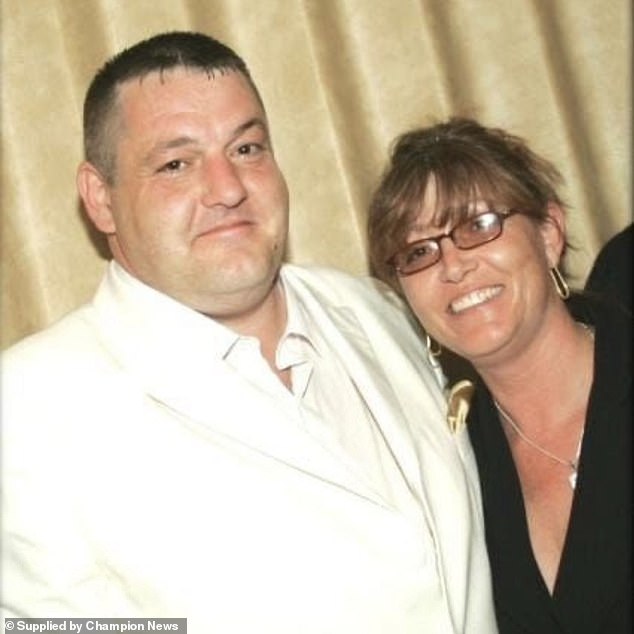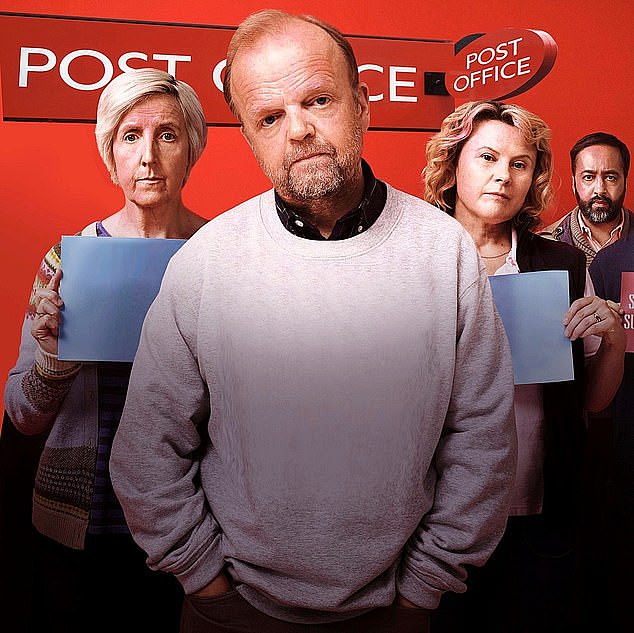The son of a Post Office manager who drank herself to death after wrongly being convicted in the Horizon computer scandal has won a court battle against his uncle for his mother’s £587,000 compensation payout.
Matthew O’Connell, 38, won his bitter inheritance war against his uncle, Mark O’Connell, 61, over his late mother, Dawn O’Connell’s estate.
Ms O’Connell, 57, died in September 2020 after a battle with depression and alcoholism stemming from her wrongful conviction for false accounting over the Post Office IT fiasco.
Tragically, her death came just seven months before the Appeal Court overturned her conviction for alleged cash shortfalls at the branch she’d run in Northolt, north west London between 2000 and 2008.
A £578,000 compensation package was later posthumously paid out by the Post Office, which then led to a court fight involving Ms O’Connell’s son and her brother.
Matthew was set to inherit her estate – which included the payout – but his uncle Mark, launched a bid for £333,000, claiming his sister owed him money when she died and also wanted him to share her compensation as he had helped her pursue it.
The case reached the High Court last week, as former security consultant Mark asked a judge, Deputy Master Joanna Lampert, to allow his challenge to proceed – despite vital case papers having been filed too late.
But the judge has now rejected his plea, which she said was out of time. The ruling effectively now blocks Mark from pursuing his claim against his sister’s estate, although he still has the right to try and appeal the decision.

Dawn O’Connell (pictured) was one of hundreds of workers prosecuted after use of the Post Office’s Horizon accounting software, which left them facing groundless accusations of theft or false accounting because the system showed up bogus financial shortfalls
Ms O’Connell was one of hundreds of workers erroneously sentenced over the use of the Post Office’s Horizon accounting software.
The scandal was later immortalised in the seismic 2024 ITV drama ‘Mr Bates vs The Post Office’, starring Toby Jones.
She was handed a 12-month suspended sentence at Harrow Crown Court in August 2008 on five counts of false accounting – which were later expunged.
However, struggling to cope with the ‘stigma’ of the sentence, her health declined ‘dramatically’. She suffered severe bouts of depression and eventually succumbed to alcoholism.
Before their court war, Matthew and Mark had been united to hear Ms O’Connell’s posthumous appeal in March 2021, when her barrister Ben Gordon KC set out the devastating impact of her wrongful conviction.
‘She became increasingly isolated, ultimately reclusive, as described by her family, and struggled desperately to deal with the stigma of her conviction,’ he said.
‘She suffered with severe bouts of depression. She did receive treatment, medication and counselling, but she sunk inexorably into alcoholism.
‘In her latter and final years, I understand that Ms O’Connell made repeated attempts upon her own life. In September of last year, her body succumbed to the damage caused by her sustained abuse of alcohol and she died tragically at the age of 57.’

Her son, Matthew O’Connell (pictured) won his court battle against his uncle over his mother’s inheritance

Mark O’Connell, Dawn’s sister, had argued he was entitled to £330,000 from her estate after reaching an agreement with her before she died. But his plea was rejected by a judge after his legal team missed a deadline to hand in key court papers
Ms O’Connell ultimately left an estate almost entirely made up of the £578,000 compensation eventually paid out by the Post Office.
Laying claim to a payout from the estate, her brother said he helped Ms O’Connell financially over the years, and played a key part in pursuing her claim when she was too unwell to do so herself, on the basis that they would split any payout.
Explaining the background, his barrister Erol Topal saidt: ‘Mark had supported her to make a claim for damages arising out of the Post Office Horizon scandal – a claim she could not have pursued without his substantial help and support.
‘She agreed that, if successful, she would share equally with him any damages, and repay him other sums he’d provided to support her during difficult episodes in her life.
‘If nothing was recovered, it was agreed that Dawn would owe him nothing – including pre-existing debts.
‘If, as Mark contends, his late sister reached the agreement he asserts, it is reasonable to expect that but for her untimely death his sister would have honoured that agreement.
‘Should Mark be prevented from making his claim, (her) estate would benefit from a significant windfall which – on Mark’s case – would not have been consistent with Dawn’s wishes.’
But Mark faced a stiff legal hurdle before his claim could proceed as his nephew argued he should be barred from suing as his lawyers missed a strict deadline for filing vital court papers.
Greg Leckey, Matthew’s barrister, argued Mark’s legal team had clear notice that it was vital not to miss this deadline.
There had been a failure ‘to comply with a clear court order’ requiring him to meet the fixed deadline for submitting the documents, and there was no compelling good reason for that failure, he told the court.
Failure to formally ‘serve’ his claim on Matthew’s legal team was unfair, since it ‘stymied administration of the estate’, prevented distribution of assets, and also impacted on Matthew’s mental health.
Responding, Mark’s barrister said the broken deadline occurred despite his solicitor’s ‘diligent’ steps to ensure compliance by attending court in person with the necessary documents the day before the deadline.

The scandal was later immortalised in the seismic 2024 ITV drama ‘Mr Bates vs The Post Office’, starring Toby Jones (pictured, centre)
‘The breach occurred because he was unable to have the claim issued that day – instead being instructed to insert the envelope containing the court papers into the drop box (at court),’ he said.
He added that eliminating Mark’s claim before it could even get off the ground would be a drastic consequence for a mistake which was ‘no fault of his own’.
Ruling, Master Lampert said the order requiring Mark to file his claim within a strict deadline was ‘intended to provide finality’ for Matthew if the papers were not lodged in time.
Refusing his bid for an extension of time beyond the strict deadline, she labelled the breach ‘serious and significant’ and said there was ‘no good reason’ for the delay.
‘There was no good reason for the failure to issue this claim against the estate by the deadline contemplated in the order,’ she told him.
‘The order was intended to be draconian in circumstances where (Mark O’Connell) had failed to advance his long-intimated claim, which was obstructing the effective administration of this estate,’ added the judge.
She also refused him permission to appeal her decision, saying: ‘I must take account of the fact that the purpose of the order is intended to have draconian consequences.
‘You are now facing the effects of the draconian consequences which are intended to apply in this situation.’
Speaking outside court following an earlier hearing, Mark said his sister’s 2007 arrest was ‘like a nuclear bomb’ for her.
‘The life just drained out of her,’ he said.
‘She had been a deeply responsible and highly dignified person who was helpful to everyone. Everyone loved her. But the day she was arrested she basically died.’
He said he had supported his sister in the years after her wrongful conviction, helping her out financially and with her compensation claim.
‘I was her spokesperson all the way through,’ he said, adding, ‘I said to her that if we were successful once all the legal fees and money was paid back to me we will go down the middle with the money.’
Although Master Lampert rejected his case, Mark still has three weeks in which to decide whether to pursue an appeal before a more senior judge.












